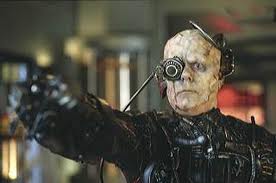November 9th, 2012 by Dr. Val Jones in Health Policy, Humor, Opinion
4 Comments »
 If you live in a small town or rural area of the United States, you may have noticed that family doctors are becoming an endangered species. Private and public health insurance reimbursement rates are so low that survival as a solo practitioner (without the economies of scale of a large group practice or hospital system) is next to impossible. Some primary care physicians are staying afloat by refusing to accept insurance – this allows them the freedom to practice medicine that is in the patient’s best interest, rather than tied to reimbursement requirements.
If you live in a small town or rural area of the United States, you may have noticed that family doctors are becoming an endangered species. Private and public health insurance reimbursement rates are so low that survival as a solo practitioner (without the economies of scale of a large group practice or hospital system) is next to impossible. Some primary care physicians are staying afloat by refusing to accept insurance – this allows them the freedom to practice medicine that is in the patient’s best interest, rather than tied to reimbursement requirements.
I joined such a practice a few years ago. We make house calls, answer our own phones, solve at least a third of our patients’ problems via phone (we don’t have to make our patients come into the office so that we can bill their insurer for the work we do), and have low overhead because we don’t need to hire a coding and billing team to get our invoices paid. Our patients love the convenience of same day office visits, electronic prescription refills, and us coming to their house or place of business as needed.
Using health insurance to pay for primary care is like buying car insurance for your windshield wipers. The bureaucracy involved raises costs to a ridiculously unreasonable level. I wish that more Americans would decide to pay cash for primary care and buy a high deductible health plan to cover catastrophic events. But until they do, economic pressures will force primary care physicians into hospital systems and large group practices. My friend and fellow blogger Dr. Doug Farrago likens this process to being “assimilated by the Borg.”
Doug offered a challenge to his readers – to customize the definition of Star Trek’s Borg species to today’s healthcare players. I gave it my best shot. Do you have a better version?
Who are the Borg:
The Borg are a collection of alien species that have turned into cybernetic organisms functioning as drones of the collective or the hive. A pseudo-race, dwelling in the Star Trek universe, the Borg take other species by force into the collective and connect them to “the hive mind”; the act is called assimilation and entails violence, abductions, and injections of cybernetic implants. The Borg’s ultimate goal is “achieving perfection”.
My attempt to customize the definition:
Hospitalists are a collection of primary care physicians that have turned into cybernetic organisms functioning as drones of the collective or hive. Hive collective administrators (HCAs), in association with partnered alien species drawn from the insurance industry and government, take other primary care physicians by economic force and connect them to “the hive mind”; the act is called assimilation and entails crippling reimbursement cuts, massive increases in documentation requirements, oppressive professional liability insurance rates, punitive bureaucratic legislation, and threat of imprisonment for failure to adhere to laws that HCA- partnered species interpret however they wish. The HCAs’ ultimate goal is “achieving perfect dependency” first for the drones, then for their patients, so that HCAs and their alien partners will become all powerful – dictating how neighboring species live, breathe, and conduct their affairs. Resistance is futile.
***
To learn more about my insurance-free medical practice, please click here. We can unplug you from the Borg ship!
October 25th, 2011 by Happy Hospitalist in Health Policy, Opinion
2 Comments »

With all the talk about how EMR/EHR resources will make practicing medicine better, faster and safer, I learned of an unintended consequence that is probably under appreciated these days. Hospitalists are being asked to admit more and more patients because, for primary care doctors, when they compare EMR medicine with the old way of doing things, EMR is just too time consuming to make it worth their effort.
That’s right, hospitalists are admitting more patients because the primary care doctors find their time costs for navigating their new EMR, which they bought to qualify for EHR stimulus funds under ARRA, are simply too great. In a business where efficiency must prevail, EHRs Read more »
*This blog post was originally published at The Happy Hospitalist*
August 28th, 2011 by RyanDuBosar in Better Health Network
No Comments »

Four out of five doctors agree that they don’t need scans to make the right diagnosis.
It’s an old-fashioned concept frequently discussed among ACP members, but the history and physical combined with basic tests is way more important to diagnosis than ordering scans and advanced tests. A recent research letter in the Archives of Internal Medicine makes the case.
In the letter, Israeli researchers described a prospective study of 442 consecutive patients admitted from the emergency department in 53 days.
A senior resident examined all patients within 24 hours of admission (mean=14), including a history, physical, and review of ancillary test findings done at the emergency department, such as blood and urine tests, electrocardiography, and chest radiography. The resident also reviewed additional tests such as Read more »
*This blog post was originally published at ACP Hospitalist*
July 28th, 2011 by John Mandrola, M.D. in Opinion
No Comments »

Today I would like to say thanks to a group of colleagues that too often go un-thanked.
These would be my hospital-based internal medicine friends: hospitalists are what they are called.
This idea came to me after reading Dr Robert Centor’s post on KevinMD. In his usual concise manner, he laments the lack of respect that many sub-specialists show hospitalists.
I feel differently about my hard-working colleagues.
As a sub, sub-specialist who works primarily in the hospital, I would like to say how grateful I am to have knowledgeable, hospital-based internists available.
I believe, and write frequently about the importance of seeing the forest through the trees. A good doctor must see the big picture: a little atrial fib, for instance, isn’t a major problem if you can’t move, eat or have widespread Cancer.
But for good patient care, the details are important too. Hospitalists are good at details. In fact, Read more »
*This blog post was originally published at Dr John M*
February 1st, 2011 by DrWes in Better Health Network, Opinion
No Comments »

 It came as a Twitter “follow” from @coldfeet65, a self-proclaimed “Nurse Practitioner Hospitalist.” I had never heard this term before. Does it mean a nurse practitioner who cares for hospitalists? Or is it a hospitalist who is a nurse practitioner? Or maybe it’s a nurse practitioner who helps hospitalists? (Honestly, I think I know which one she means, but you get my point.)
It came as a Twitter “follow” from @coldfeet65, a self-proclaimed “Nurse Practitioner Hospitalist.” I had never heard this term before. Does it mean a nurse practitioner who cares for hospitalists? Or is it a hospitalist who is a nurse practitioner? Or maybe it’s a nurse practitioner who helps hospitalists? (Honestly, I think I know which one she means, but you get my point.)
Perhaps this is a prescient glimpse to healthcare of the future, where our more typical nurse and doctor labels are supplanted by more and more monikers that serve to confuse, rather than clarify, each of our roles in healthcare delivery. As specialists in cardiology, we’ve seen a similar trend with cardiology hospitalists. But we should be clear what this means to the patients and doctors going forward.
No doubt most people in America still expect to see a doctor when they come to the hospital. Increasingly, it appears that might not be the case. Your doctor might be a robot while a nurse (aka, nurse practitioner) will be the one providing the hands-on care in the inpatient setting. Is that a good thing? Honestly, I’m not sure.
No one argues that the costs in healthcare need to be cut. No doubt the central authority has deemed that doctor salaries will be a big part of that effort. Already, 20 states have cut physician Medicaid payments for fiscal year 2010 and, given the current economic pressure on our states both now and after they start feeling the financial impact of the “Affordable” Care Act in 2019, this trend is not likely to improve anytime soon. As a result, we are seeing that the world is full of “creative solutions” to our healthcare access crisis and the evolution to “nurse practitioner hospitalists” might be one of these. Read more »
*This blog post was originally published at Dr. Wes*
 If you live in a small town or rural area of the United States, you may have noticed that family doctors are becoming an endangered species. Private and public health insurance reimbursement rates are so low that survival as a solo practitioner (without the economies of scale of a large group practice or hospital system) is next to impossible. Some primary care physicians are staying afloat by refusing to accept insurance – this allows them the freedom to practice medicine that is in the patient’s best interest, rather than tied to reimbursement requirements.
If you live in a small town or rural area of the United States, you may have noticed that family doctors are becoming an endangered species. Private and public health insurance reimbursement rates are so low that survival as a solo practitioner (without the economies of scale of a large group practice or hospital system) is next to impossible. Some primary care physicians are staying afloat by refusing to accept insurance – this allows them the freedom to practice medicine that is in the patient’s best interest, rather than tied to reimbursement requirements.













